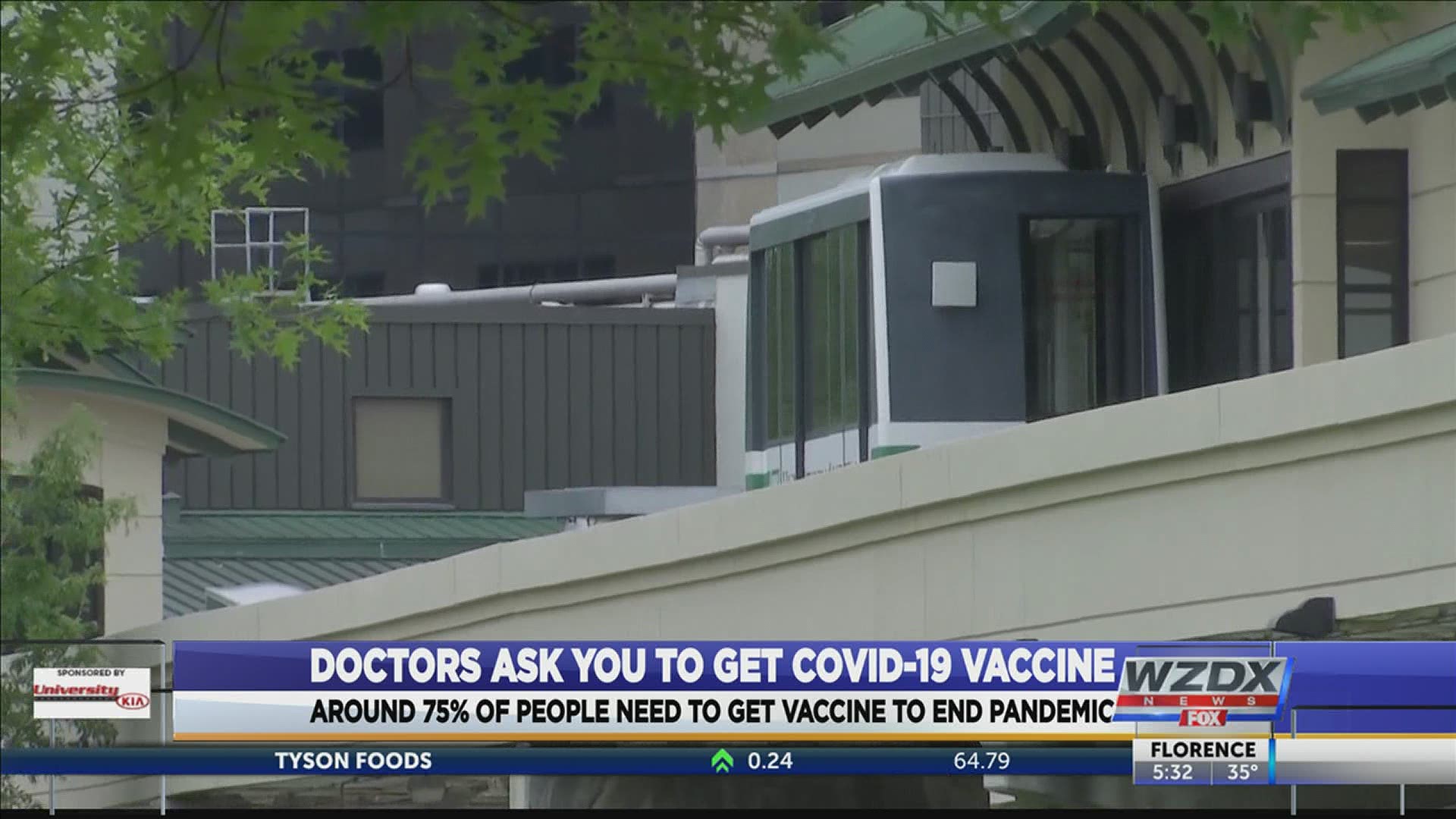ALABAMA, USA — On Tuesday, a person in Decatur experienced anaphylaxis after getting the COVID-19 vaccine. That person is said to be recovering.
Officials say the patient in Decatur had a previous history of anaphylaxis to biologic agents and decided to proceed with the vaccine following a risk assessment.
This type of reaction is very rare. Almost everyone is encouraged to get the COVID-19 vaccine as soon as they can, but there are some people health officials are advising against it, like kids. Pfizer's vaccine is not approved for people younger than 16 years old, and Moderna's vaccine is only recommended for people 18 and older.
Because there is limited data about the safety of COVID-19 vaccines for people who are pregnant or breastfeeding, these women should decide for themselves.
Dr. Karen Landers with the Alabama Department of Public Health said, "Each pregnant woman that could be at risk, especially as a health care worker, should weigh the situation and discuss with her health care provider."
Although rare, Alabama health officials say adverse reactions can happen with any vaccine. So far, only six people in the nation have reported anaphylaxis after getting the COVID vaccine.
To be safe, make sure you are not allergic to any of the ingredients in the COVID-19 vaccine before getting the shot.
You can find a list of ingredients for both the Pfizer and Moderna vaccine on page four of the CDC's Pre-Vaccination Checklist.
"Clearly if a person has a history of anaphylaxis to the ingredients of the vaccine, those persons might be persons that would not receive the vaccine," said Dr. Landers. "Persons who have a history of anaphylaxis to another biological or another medication, it is not an absolute contraindication. It was mentioned as a relative contraindication, which means again, the risk-benefit ratio of the vaccine should be discussed with the individual."
If you have a history of severe allergic reactions not related to vaccines, like allergies to food, pets, or latex, the CDC says you can still safely get the COVID vaccine.
Because these vaccines are new, everyone who gets the vaccine is monitored as a precaution.
"Currently the recommendations are persons who have that type of history of true anaphylaxis previously to be monitored for 30 minutes after administering the vaccine, and then persons who receive the vaccine who have no history of anaphylaxis to be monitored for 15 minutes after receiving the vaccine," said Dr. Landers.
Medical workers are prepared to respond to any adverse reactions to the COVID-19 vaccine.
If you are still unsure if you should or should not get vaccinated, click here to read through the CDC's Pre-Vaccination Checklist.
WATCH: Allergic reactions are a possibility when it comes to getting the vaccine, but very uncommon

